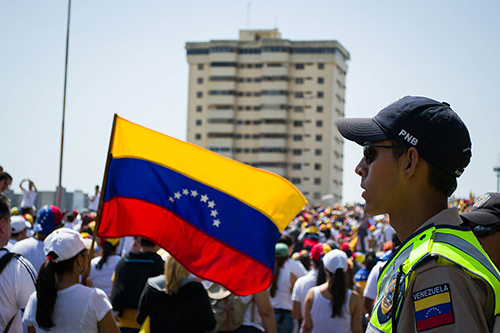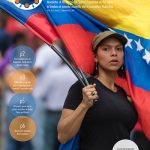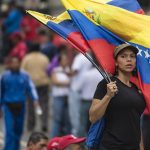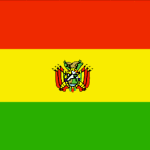 GENEVA / WASHINGTON, DC – A group of United Nations and Inter-American human rights experts, including Maina Kiai, deplored today the attempts to discredit and intimidate human rights defenders on Venezuela’s State-controlled television, in retaliation for their human rights activities and cooperation with UN and regional human rights bodies.
GENEVA / WASHINGTON, DC – A group of United Nations and Inter-American human rights experts, including Maina Kiai, deplored today the attempts to discredit and intimidate human rights defenders on Venezuela’s State-controlled television, in retaliation for their human rights activities and cooperation with UN and regional human rights bodies.
“It’s high time to pull the plug on this shameful and televised harassment of rights activists in Venezuela,” the experts said. “We condemn what has become a clear pattern to intimidate and defame human rights defenders for merely promoting human rights in their country and for engaging with international and regional human rights bodies.”
The experts drew attention to the systematic targeting of human rights defenders through the weekly TV programme ‘Con el Mazo Dando’, transmitted by the state network Venezolana de Televisión, including by publishing personal information on its website. The programme is hosted by the President of the Venezuelan National Assembly, Diosdado Cabello, who goes on air to make accusations against rights activists and civil society organisations with an apparent aim to intimidate them.
The experts recalled that the UN and Inter-American human rights bodies are charged to monitor Venezuela’s implementation of its international and regional human rights obligations, and as such the Government is bound to respect and defend the participation by rights activists in those proceedings. “Any act to thwart such engagement, be it on- or off-air, directly contravenes international human rights law,” they stressed.
“We call on the Venezuelan authorities to immediately cease the targeting of rights activists,” they said. “Human rights defenders and civil society organisations must be able to carry out their human rights work and cooperate freely and safely with international and regional human rights mechanisms without fear of intimidation and reprisals.”
Three recent incidents of unjustifiable televised reprisals
On 11 February and 18 March 2015, several human rights defenders and their organisations were named and slandered on ‘Con el Mazo Dando’ before and after their participation in the hearings about Venezuela before the Inter-American Commission of Human Rights in Washington DC in March 2015. On their return to Venezuela, they were followed and photographed at the airport without their consent. Later on 13 May 2015, the programme publicly shared the details of travel itineraries and private meetings planned by human rights defenders.
The TV-show continued to target human rights defenders following their participation in the June 2015 session of the UN Committee on Economic, Social and Cultural Rights examining Venezuela in Geneva. Some organisations were also falsely accused on Twitter by the managing director of the National Telecommunications Commission, William Castillo, for having received international funds for the purpose of spreading negative information about Venezuela. These accusations were subsequently repeated by various high-ranking officials of the Venezuelan Government.
On 1 July 2015, quoting from ‘cooperating patriots’, the programme singled out and made disparaging remarks against various civil society members and their organisations following their collaboration with the UN Human Rights Committee, during its review of the fourth periodic report of Venezuela on 29 and 30 June in Geneva.
UN experts: Michel Forst, Special Rapporteur on the situation of human rights defenders; David Kaye, Special Rapporteur on the promotion and protection of the right to freedom of opinion and expression; and Maina Kiai, Special Rapporteur on the rights to freedom of peaceful assembly and of association.
The Inter-American human rights experts: José de Jesús Orozco, Rapporteur on Human Rights Defenders; and Edison Lanza, Special Rapporteur on Freedom of Expression.
The full press release is available in English, Spanish and Chinese via OHCHR.

 Tweet
Tweet
 Facebook
(0)
Facebook
(0) 




